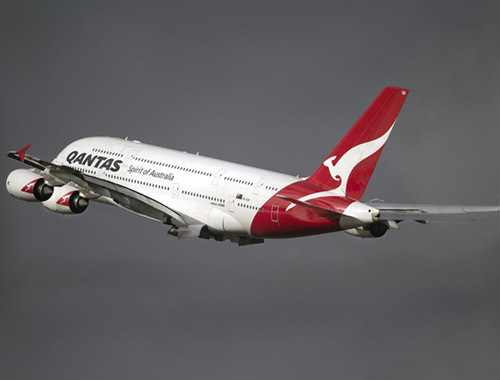- Summer 2023
- When future or contingent workplace rights can be protected under the Fair Work Act 2009 (Cth)
When future or contingent workplace rights can be protected under the Fair Work Act 2009 (Cth)

Qantas Airways Limited & Anor v Transport Workers Union of Australia [2023] HCA 27
In unanimously dismissing the appeal brought by Qantas Airways Limited (Qantas), the High Court confirmed that adverse action taken for the ‘substantial and operative’ reason of preventing the exercise of a workplace right contravenes s 340(1)(b) of the Fair Work Act 2009 (Cth) (the FW Act), regardless of whether the person against whom the adverse action is taken has the relevant workplace right at the time. The effect of this decision is that an employer will not avoid the operation of s 340(1)(b) by taking adverse action prior to the existence of the relevant workplace right, confirming that the section operates in respect of workplace rights presently held (including contingent rights not presently exercisable) as well as future workplace rights.
Background
The appeal concerned a decision, announced by Qantas on 30 November 2020 following a $2.7 billion statutory beforetax loss resulting from the coronavirus pandemic, to outsource its ground handling operations at ten Australian airports. The ground handling operations had been performed by employees of Qantas and Qantas Ground Services Pty Limited (QGS), many of whom were members of the Transport Workers Union of Australia (TWU).
At the time of making the outsourcing decision, the Qantas employees were prohibited by s 417 of the FW Act from organising or engaging in protected industrial action under s 415 because their enterprise agreement had not passed its nominal expiry date. The affected QGS employees were also unable to take protected industrial action of significance (even though their enterprise agreement had passed its nominal expiry date) because the statutory steps necessary to engage in that action had not yet been taken.
Legislative framework
Section 340(1)(b) provides that a person must not take adverse action against another to prevent the exercise of a workplace right. ‘Adverse action’ is defined in s 342 and includes altering the position of the employee to the employee’s prejudice.
When future or contingent workplace rights can be protected under the Fair Work Act 2009 (Cth)
It was not in dispute that the outsourcing decision constituted adverse action for that reason within the meaning of s 342(1).
While s 340 of the FW Act contains the relevant protection, s 341 provides what was described as the ‘substantive statement identifying when a person has’ the workplace right protected: [47] per Kiefel CJ, Gageler, Gleeson and Jagot JJ; [79] per Gordon and Edelman JJ. Their Honours declined to accept Qantas’s submission that s 341 is definitional and limits the operation of s 340 to presently existing rights. Steward J by contrast expressed the view that s 341 is definitional ([121]), although his Honour also rejected Qantas’s submission that s 341 limits s 340.
Relevantly, section 341(1)(a) and (b) provide that a person has a workplace right if the person: is entitled to the benefit of, or has a role or responsibility under, a workplace law, workplace instrument or order made by an industrial body; or is able to initiate, or participate in, a process or proceedings under a workplace law or workplace instrument. While the focus of much judicial scrutiny elsewhere (see authorities at [116], fn 107), s 341(1)(c) was not the subject of the appeal.
It was not in contention that all affected employees were entitled to the benefit of a workplace instrument (s 341(1)(a)), being an enterprise agreement made under the FW Act, nor that a ‘process or proceedings’ (s 341(1)(b)) included ‘protected industrial action’ and ‘a protected action ballot’: s341(2)(c) and (d).
Critically, s 361 imposes on the employer a rebuttable presumption that the adverse action was taken for the alleged proscribed reason or intent. Under s 360, a person ‘takes action for a particular reason if the reasons for the action include that reason.’ The effect of ss 360 and 361 together is to place on employers a formidable evidentiary burden.
An employer rebuts the presumption by proving that none of the employer’s ‘substantial and operative’ reasons for the adverse action was to prevent the exercise of workplace rights. The rebuttable presumption in s 361 recognises that the decisionmaker is uniquely placed to know the reasons for their action and should thus be made to prove them ([63] per Gordon and Edelman JJ; [85] per Steward J).
Rebuttable presumption
At first instance, in proceedings commenced by the TWU, Qantas failed to satisfy Lee J that, despite having sound commercial reasons for the outsourcing decision, Mr Andrew David (Chief Executive Officer of Qantas Domestic and International), was ‘not subjectively conscious of other considerations’. Lee J concluded that Qantas had not discharged its onus of disproving that substantial and operative reasons for the outsourcing decision were to prevent the affected employees from organising and engaging in protected industrial action and participating in enterprise bargaining the following year.
Parties’ arguments before the High Court
Qantas framed its case on appeal as being whether s 340(1)(b) can apply to a decision (for instance to terminate an employee) at a time when the employee does not have a workplace right as defined in s 341, but with an appreciation that to defer the decision may mean that, at a future time, the employee may have a workplace right which might be used to resist termination.
This argument was said to be broken into two contentions: first, that s 340(1) (b) applies only to presently existing rights and not to rights that were ‘time-bound’ (meaning accruing, such as annual leave) or dependent on particular events occurring; secondly, s 340(1)(b) does not prohibit a decision timed to ‘take advantage of an architectural feature of the [FW] Act which positively denies to the TWU and employees the right to oppose the decision by industrial action, a denial which delay might reverse’: [28]-[29] per Kiefel CJ, Gageler, Gleeson and Jagot JJ; [66] per Gordon and Edelman JJ; [116]-[117] per Steward J.
Connectedly, Qantas argued that s 341(1) (a)-(c) was itself confined to presently held workplace rights and did not extend to contingent rights or abilities or those that were, at the relevant time, precluded by law.
The TWU and the Minister for Employment and Workplace Relations (intervening) contended that the employees had contingent rights to initiate or participate in protected industrial action and this was sufficient to satisfy s 341(1)(b) for the purposes of the protection in s 340(1)(b).
Reasoning
In three separate judgments, the High Court accepted that there is a difference between workplace rights dependent on temporal and circumstantial contingencies as opposed to workplace rights the exercise of which are prohibited by law, including the right to take industrial action, which is precluded by s 417 until ‘protected’ by the statutory immunity conferred by s 415. In the former case, the employee ‘has’ the workplace right, although not presently exercisable; in the latter case, the employee does not have the right at that point at all. Their Honours were of the view that, as at the date of the outsourcing decision, the affected employees did not have either category of workplace right within the meaning of s 341(1): [39] per Kiefel CJ, Gageler, Gleeson and Jagot JJ; [76] per Gordon and Edelman JJ; [117] per Steward J.
Ultimately, their Honours held that the words ‘to prevent the exercise of a workplace right’ in s 340(1)(b) meant ‘in order to prevent’ and encompass stopping or putting an obstacle in the way of the exercise of a presently held right or in the way of exercising a right that may arise at some future date, asking rhetorically why would it be construed as applying to adverse action to prevent the future exercise of a presently held workplace right, but not to adverse action to prevent the future exercise of a future workplace right: [45] per Kiefel CJ, Gageler, Gleeson and Jagot JJ; [82], [84] per Gordon and Edelman JJ;[122] per Steward J.
Each of Qantas’s responses to that question was rejected: that s 341(1) was definitional such that it confined the operation of s 340(1) (b) by adding a temporal relationship; that interpreting s 340(1)(b) to apply to future rights gave it primacy over s 340(1)(a), would make it easier to prove a contravention of s 340(1)(b) than s 340(1)(a), would render s 341(3)-(5) otiose and/or would defeat the statutory time limitations in other parts of the FW Act (such as placed upon protected industrial action and the unfair dismissal jurisdiction); and that the inclusion of conditional or contingent rights makes s 340(1)(b) uncertain: [47]-[50], [53]-[56] per Kiefel CJ, Gageler, Gleeson and Jagot JJ; [81], [85]-[87] per Gordon and Edelman JJ; [121]- [124] per Steward J.
Further questions considered
While not the subject of the appeal, s 340(1)(a)(i)-(iii) was also examined. It was confirmed to operate differently from s 340(1)(b), with only s 340(1)(a)(iii) applicable to future (or past or present) workplace rights: [42]-[44] per Kiefel CJ, Gageler, Gleeson and Jagot JJ; [83] per Gordon and Edelman JJ; [121] per Steward J.
Steward J also addressed the much-disputed phrase ‘is able to’ in s 341(1) (c), presently settled at the appellate level by the Full Court of the Federal Court, applying the principle that the ‘ability’ to exercise the right in s 341(1)(c) must be underpinned by some entitlement or right to do so. Steward J said this is ‘plainly correct’: [116]. His Honour also considered corporate decision-making and the need to distinguish between the ‘actual or operative reason for taking adverse action and factors contributing to the causes for adverse action’: [104]-[113]. BN

